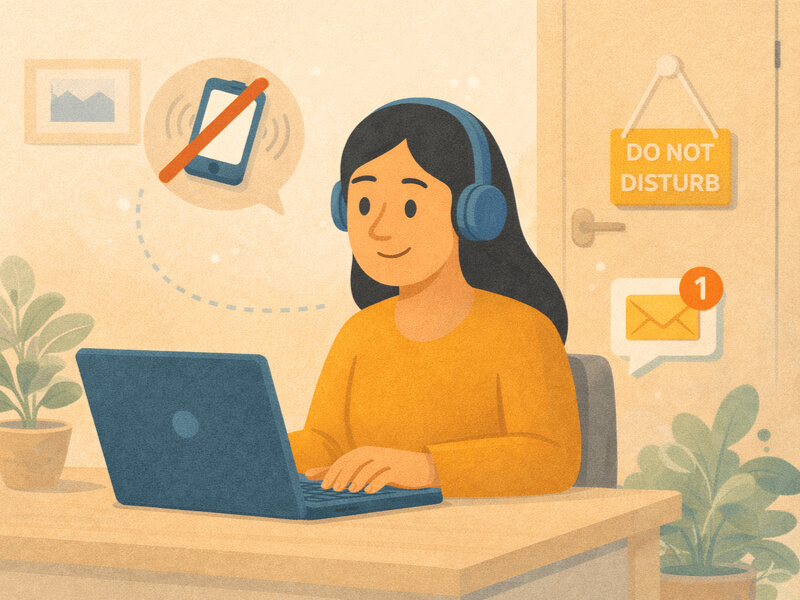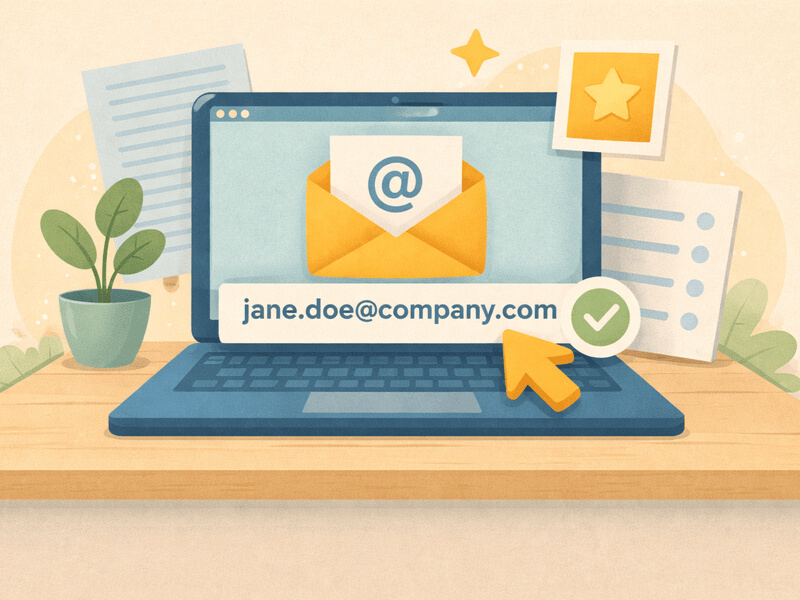
Today, email remains an indispensable means of professional communication despite the fact that instant messaging and collaboration tools such as Slack, Teams, Zoom, and more exist. However, while we may use emails on a daily basis to convey our messages effectively, not coming off as aggressive, entitled or rude can be a tricky task - not many have perfected it yet. Much like making requests to write research paper for me to a professional service, workplace emails require a delicate balance of clarity, professionalism, and courtesy.
Email communication lacks the nonverbal cues that make up 93% of face-to-face conversation. Without body language, facial expressions, or vocal tone to guide recipients' interpretation, their emotional state often gets projected onto what you write. As a result, even neutral messages may be perceived negatively by someone already feeling stressed or overwhelmed.
Structure Emails to Make Maximum Impact
The format and layout of your emails have an immense effect on their reception. Use these guidelines to craft messages that deliver your point effectively:
- Clear and specific subject lines: Your subject lines provide the perfect opportunity to convey the heart of your message or any required actions. Rather than using generic terms like "Question” or “Presentation," use phrases like "Quick Question about Thursday's Presentation."
- Start off on a positive note by greeting: Even in our more casual work culture, starting your conversation off by saying something as simple as "Hi [Name]" sets off positive vibes and makes the first impression count. In turn, jumping straight to your request could come across as demanding.
- Quickly get to the point: Following the pleasantries, state your purpose clearly. For example, if I need you to write a research paper for me by Friday, I’d say so from the start instead of trying to give context clues and subtle hints.
- Organize your requests: Make your email scannable by breaking up information into short paragraphs, bullet points and numbered lists to make it more readable and less intimidating. Dense walls of text may cause people to stop reading altogether and skim over important details.
- End with an explicit call-to-action: State exactly what you expect to get from this email. Be detailed if you want an answer, actionable response, or a result right away. Make this crystal clear at the final part of your email.
- Warm up your email account: Before sending important emails, use email warm-up tools to gradually build your sender reputation and increase inbox placement. This ensures your emails reach the right audience and avoid spam filters.
- Leave an unforgettable email signature: To complement that positive first impression, consider integrating email signature management software so every email concludes with a consistent, professional sign-off—complete with up‑to‑date contact details and corporate branding.
Before composing your email, ensure you have the correct email address. You might find this by checking the company’s official website or ‘Team’ page, using email finder tools or reaching out to an assistant or shared colleague. Taking that extra step helps your message reach the right person and improves your chances of a response.
The Language of Professional Emails
The words you choose dramatically affect how your message is received. Here are linguistic techniques that can help you avoid sounding like a jerk:
Use "I" Statements Instead of "You" Accusations
Compare:
- "You didn't include the data I needed in your report." (accusatory)
- "I noticed the quarterly figures weren't in the report. Could you send those when you have a chance?" (focused on the issue, not the person)
When providing research paper writing help to colleagues, this approach maintains relationships while still addressing problems.
Apply the Compliment Sandwich (With Caution)
The compliment sandwich places constructive criticism between two positive statements. While overused in some contexts, a thoughtful version can work in emails:
"Thanks for the quick turnaround on this proposal. I think we need more specific examples in section three to strengthen our argument. Overall, I'm excited about the direction we're taking!"
Drop the Hedging Language
Phrases that add uncertainty to your email will undermine your authority and damage your chances of being heard. Avoid such words as kind of, some, just, sort of, and actually. You can agree that a sentence starting with “Can you do this by…?” sounds more assertive and confident than "I was just wondering if you could write my research paper online..." This goes beyond just being polite—it sounds insecure.
Beware of Passive-Aggressive Phrases
Certain phrases almost always come across as passive-aggressive in emails:
- "As per my last email..." (Try: "To follow up on our previous conversation...")
- "For future reference..." (Try: "Going forward, it would be helpful if...")
- "Not sure if you saw my email..." (Try: "I wanted to follow up on my previous email about...")
Timing Matters
Even perfectly worded emails can seem inconsiderate if sent at the wrong time:
- Respect after-hours boundaries: Unless genuinely urgent, save emails for working hours. Scheduling tools let you write my research paper for me cheap on your own time while delivering it during business hours.
- Consider time zones: If working with global teams, be mindful of when your email will land in their inbox.
- Give adequate response time: Don't expect immediate responses, especially for complex requests. When asking someone to help me write my research paper, provide reasonable deadlines.
Special Email Situations
The Follow-Up Email
After a reasonable waiting period (usually 2-3 business days), it's appropriate to send a follow-up. Instead of the passive-aggressive "Just checking in..." try:
"I wanted to follow up on my email from Tuesday about the client proposal. Do you have the information I requested? Please let me know if you need anything from me to move forward."
The "Reply All" Dilemma
Before hitting "Reply All," ask yourself: Does everyone on this thread need my response? If you need someone to write me a research paper summary for a team project, consider whether the entire department needs to see your request.
The Thank You Emails
Sending a simple email to thank a teammate is a great way to show appreciate and build your relationship. It's easy to do and can really make someone's day.
The Feedback Email
When providing feedback, be specific and solution-oriented:
"The introduction needs more data points to support our main argument. Could we incorporate the statistics from last quarter's report?"
This approach is more helpful than vague criticisms like "This isn't working."
The Final Check
Before sending any work email, take a moment to review it with these questions:
- Is my main point clear?
- Have I provided all the necessary information for the recipient to take action?
- Is my tone respectful and professional?
- Would I get in trouble if everyone saw this email?
When making any major request, like asking someone else to do my research paper for me, this final check will ensure you get the best results and come across as an honest and respectful colleague.
By becoming proficient at crafting clear and considerate emails, not only will you increase response rates to your requests but also earn the reputation as a professional communicator - an invaluable addition within any workplace environment.
























